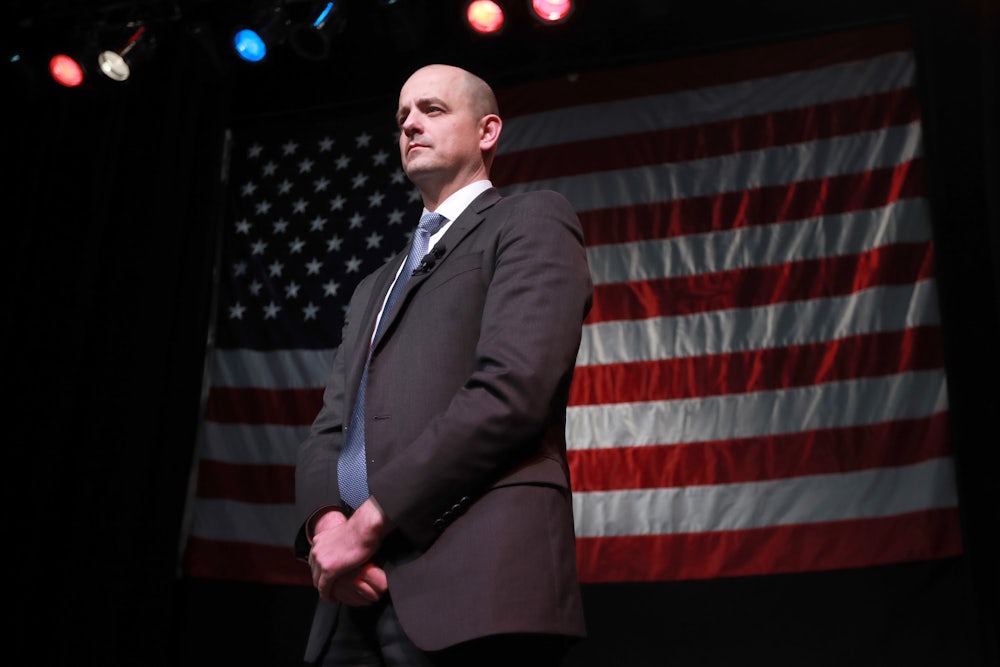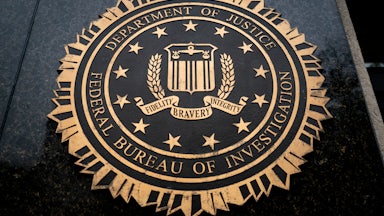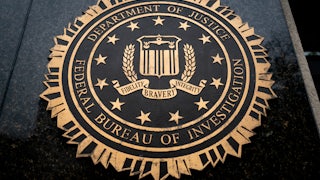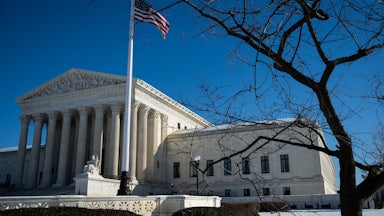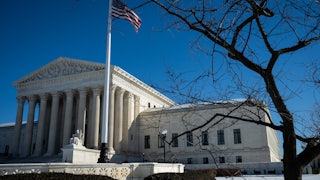For Utah Democrats, the decision to abandon party loyalty in favor of political pragmatism came over bagels and coffee—and orange juice for the decaffeinated members of the Church of Latter-day Saints in attendance. In the weeks leading up to the state’s primary, Ben McAdams, a former Democratic Utah congressman and Salt Lake County mayor, congregated members of the party in his family’s Salt Lake City living room to encourage them to join him in throwing their support behind an independent candidate instead of a Democrat.
And so the famous—and unprecedented—political “coalition” that independent Senate candidate Evan McMullin has touted on the campaign trail was born. In a ruby red state that hasn’t seen a Democrat elected to the Senate in four decades, the Utah Democrats decided to collectively cut bait and become backers of the splashy Never-Trumper, a candidate who has vowed that, if he wins, he would not caucus with either party in the Senate. Whether or not this Utah team-up of McMullin and in-state Democratic elites will bear fruit won’t be seen until voters head to the polls. Nevertheless, McMullin and his supporters believe that their efforts will at least spark a renewed interest across the nation in the importance of democracy and the need to protect it.
“In our country now there is a movement that wants to dismantle American democracy. They don’t believe in it anymore,” McMullin told me in a phone interview, pointing to CPAC’s embrace of Hungary’s autocratic leader Viktor Orbán and comments by Republican Senate candidate J.D. Vance. (Vance told James Pogue, “We are in a late republican period.... If we’re going to push back against it, we’re going to have to get pretty wild, and pretty far out there, and go in directions that a lot of conservatives right now are uncomfortable with.”)
McMullin proceeded to deliver an ominous warning: “If we don’t build a new coalition of Republicans, Democrats, and independents broadly in this country, and we remain as polarized as we are, then eventually we will lose our democracy. I think we’ll decide as a country over the next two, maybe three cycles whether we’re still a democracy or whether we’re choosing to go down another road.”
It was McAdams who pioneered the effort to bring his party into McMullin’s fold. During those Saturday meetings, he’d stand in front of his fireplace to repeat a well-honed pitch. “We know how this race turns out,” he’d say to the dozen or so voters congregated in front of him about a conventional race between a Utah Democrat and the incumbent Republican Mike Lee. “Insanity is doing the same thing over and over again and expecting a different result.” He held a handful of these meetings leading up to the state party convention; on some occasions, McMullin himself would pop in at the very end to personally deliver his spiel.
It wasn’t a straightforward effort. Dave Buhler, a political science professor at the University of Utah, remembers his shock when McAdams sat across the table from him over lunch and shared his decision to support McMullin. “I thought, ‘There’s no way they can pull this off,’” he told me over the phone. “So hats off to him and others who did that.”
While some Democrats, especially younger voters, have expressed worry that they may have done some damage to their party’s prospects by not electing a Democratic candidate in the primary, their sentiments reflect a somber reality.
“At the convention, it was kind of heartbreaking, because you could see some people who had put their heart and soul into building the Democratic Party and supporting it,” said Kay Hoogland, 66, in a Zoom interview. A native Utahn and member of the Democratic Party who is volunteering for McMullin’s campaign, Hoogland expressed that her fellow party members felt that supporting an independent candidate was the only way to make their voices heard.
“On the other hand,” she added, taking a sip of coffee, “you saw pragmatic Democrats saying, ‘We don’t agree with Evan on many policy points, but we agree he will be a great candidate. And he will change the dialogue, perhaps.”
Hoogland mentioned that a woman’s right to choose is the number one issue on which Democrats disagree with the candidate they’ve decided to support. I asked McMullin how he would vote in the Senate if another bill seeking to codify Roe v. Wade came to the floor. He didn’t answer me directly but said he’ll “give a good look to any bill that has the capacity or potential to pass the Senate and will require support from Republicans and Democrats, most likely, to do so.”
McMullin went on to contend that many of the bills being introduced in the Senate lately are passed as “messaging instruments or even just to divide Americans further.” He does support making contraception more widely available to lower abortion rates.
But these concerns put the cart before the horse. The more immediate question before McMullin and his stitched-together coalition has less to do with how an independent Senator from Utah might govern and more to do with whether he will get that chance at all. There are some signs that his efforts could pay off: Several outlets and political analysts have identified the contest as a “sleeper race.”
Meanwhile, Lee, who should be running away with the race as an incumbent looking to hold his seat in such a deep red state, isn’t: According to the latest poll from Utah’s Deseret News, he leads at 41 percent compared to McMullin’s 37 percent. That’s just outside the poll’s margin of error—and that’s a considerable number of undecided votes that have yet to come home so late in a race featuring two known quantities. Lee has acknowledged the tightness of the race as well. He recently went on Fox News to plead with Mitt Romney to offer him his endorsement, which all but indicates that he needs to win over Trump-skeptical conservatives in the state.
“All 48 of my other Republican colleagues are on board with me … it’s not too late, Mitt,” he said on Tucker Carlson’s show. Supporters and critics of McMullin alike agree that Romney’s refusal to formally back Lee might as well be support for his independent opponent.
Lee’s special pleading for Romney’s affection suggests that maybe McMullin’s strategy is working. His hope is that Lee’s embrace of Trump will lead independents and Democrats to vote in large enough numbers to oust the incumbent. Lee has done himself no favors: His text messages to former White House chief of staff Mark Meadows, in which he indicates that he attempted to find a way to make Donald Trump the winner of the 2020 election, have become a focal point of the campaign—and McMullin’s attacks. Lee has countered that he ultimately voted to certify the election results.
And while McMullin is painting himself as a conservative, Lee’s camp is trying to convince voters that he’s merely a Democrat in disguise. But McMullin told me that he thinks this specific criticism will backfire by actually convincing some Democrats to support him.
During the race’s only debate, Lee criticized McMullin for not having a party affiliation, arguing that parties are an important proxy. I asked McMullin if people are crazy to trust a lone wolf. “Are people crazy to trust somebody who’s so beholden to a party and to a party boss outside of our state?” he responded. “The senators who act with greater independence become the most influential there—I would say the most influential people in Washington, second to the president.” The claim is credible: Senators Joe Manchin and Kyrsten Sinema come to mind as party-bucking legislators who’ve exerted outsize influence recently.
But McMullin was quick to point out, “I want to be very clear, I am not making any comments about what those senators have done with their influence.”
Utah is a unique state, and its Republican Party stands out from Republicans from the rest of the country in meaningful, often interesting, ways. While the official party apparatus in Utah is supportive of MAGA-style candidates, the state’s entire delegation in the House of Representatives, all Republican, crossed party lines to vote in favor of a bill that would codify same-sex marriage. Around 60 percent of the state’s citizens identify as Mormon, according to the most recent data released by the church in 2020, and also typically identify as either Republican or independent. The Beehive State is a ripe breeding ground for independent candidates, in ways that we won’t soon see taking shape anywhere else in the country.
“I don’t think it’s going to have a long-term impact on elections outside of Utah,” said Rory Cooper, a longtime Republican strategist. He noted that Utah is an “extremely unique” political environment, which is conservative but also mild-tempered. “[The coalition] might have worked if Mike Lee was more in the model of his friend Ted Cruz,” he added.
But McMullin is still hopeful his race will be an inspiration. “I think it could have relevance,” he said. “I hope it does.”
